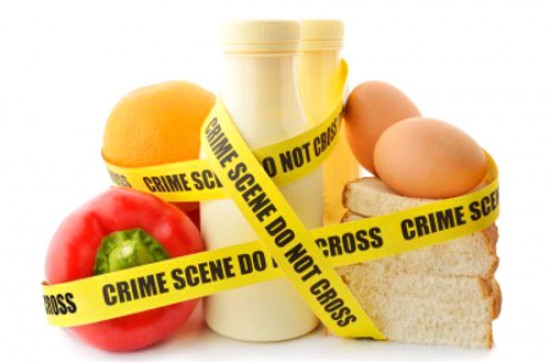Counterfeit food is a serious international problem. One of the biggest food safety issues right now involves the deliberate adulteration of food with biological or chemical agents. Economically motivated adulteration (EMA), is not aimed to harm people but to inflate profits by fraudulent means. EMA events cost the food industry between $10 billion and $15 billion a year.
What exactly is EMA?
Cheap products are presented as branded or top-quality ones, or cheaper ingredients are added to genuine products to increase profit margins. Mislabeling is another issue. Over 50 percent of pomegranate juices do not contain the advertised ingredients. Shaun Kennedy, former director of the National Center for Food Protection and Defense at the University of Minnesota, estimates that 10 percent of food that consumers buy in the developed world has been adulterated.
Whenever there is food tampering, there are potential risks to health.
Kennedy joins Melanie Cole to explain what's happening with our food system. He also shares the top food most subject to food fraud and how to protect yourself.
The Scary Truth About Food Fraud
One of the biggest food safety issues right now involves the deliberate adulteration of food with biological or chemical agents.
Additional Info
- Segment Number: 4
- Audio File: staying_well/1333sw1d.mp3
- Featured Speaker: Shaun Kennedy
- Organization: University of Minnesota
-
Guest Bio:
Shaun Kennedy has a strong background in research, organizational leadership and project management via global executive positions with Ecolab and Procter & Gamble.
Before joining the Center, Kennedy was Ecolab's Vice President of Global Food & Beverage Research & Development, charged with leading his organization in developing a wide range of novel animal health and food safety technologies. These included, among others, FDA-approved red meat tissue sanitizing rinses, FDA-approved poultry process water sanitizers and udder health care systems. Mr. Kennedy's experience at leading Research & Development programs; commercializing new technologies; working with state, federal and international regulatory agencies; and intellectual property management are a great addition to the Center.
His comprehensive understanding of farm and plant operations and the full range of the food chain from farm to fork also will be invaluable help as the Center pursues its mission to develop technologies, approaches and information resources that will significantly contribute to the global food system's safety, security and sustainability.
Mr. Kennedy received his Bachelor's of Science & Engineering in Chemical Engineering from Princeton University. - Length (mins): 10
- Waiver Received: Yes
- Host: Melanie Cole, MS
Published in
Staying Well
